Excerpt from
On Pilgrimage
Dorothy Day
"...The alternatives are not capitalism or socialism. We must take into consideration the nature of man and his needs, not just cash [for] commodities, food, and clothing, but a home, a bit of land, and the tools with which to work, part ownership in workshops and stores and factories.
Distributism does not mean that everyone must be a farmer. The Distributist thinks in terms of the village economy, and as for the size of the CITY (the city of God) which Cardinal Suhard talks of our building, that is a matter of situation. It may be five hundred, it may be five thousand, it may be fifty thousand population. The main thing to do is to distribute the cities before the atom bomb does it. We are not suggesting that it be done by force but by education. If that seems too slow a method, probably depression, war, hunger, and homelessness will play their part. We only know it is not human to live in a city of ten million. It is not only not human, it is not possible. "Cities are the occasion of sin," Father Vincent McNabb said, and of course any theologian will say that we should flee the occasions of sin. Pope Pius XII pointed out that it was difficult for modern youth to live in the cities without heroic virtue. (And it was never intended that the good life should demand heroic virtue.)
Distributism does not mean that we throw out the machine. The machine, Peter Maurin used to say, should be the extension of the hand of man. If we could do away with the assembly line, the slavery of the machine, and the useless and harmful and destructive machines, we would be doing well.
In the psalms it says, "Lord, make me desire to walk in the way of Thy commandments." Daniel was called a man of desires, and because he was a man of desires, the Lord heard him.
Cardinal Suhard of Paris and Father de Lubac, S.J., both cry out against the refusal of some traditionalists to be co-creators with God and use the tools which science has put in mans hands. But Father de Lubac also writes (in The Dublin Review), "Does not the discovery of new values involve the depreciation of other, perhaps more fundamental ones? And does it not breed, even while the discovery is still modest and tentative, a kind of intoxication, so that the passionate interest it arouses tends to make men oblivious of everything else, even of essentials? And so ambiguous situations pile up, leading inevitably to crises whose outcome no one can safely prophesy."
But the essentials are food, clothing, and shelter. The essential is ownership, which brings with it responsibility, and what is more essential than the earth from which we all spring, and from which comes our food, our clothes, our furniture, our homes?
It is as a woman, a mother, speaking for the family and the home, that I protest the work of "priest-sociologists," who in their desire to help the worker are going along with him in his errors and are accepting the easy way of capitalist industrialism, which leads to collectivism and the totalitarian state.
The warning is there, [in] Isaiah 26:56:
He shall bring down them that dwell on high; the high city he shall lay low. He shall bring it down even unto the ground; he shall pull it down even to the dust. The foot shall tread it down; the feet of the poor, the steps of the needy.
[So] "strengthen ye the feeble hands, and confirm the weak knees. Say to the fainthearted, Take courage and fear not. Behold, your God will bring the bread of recompense. God Himself will come and save you.""



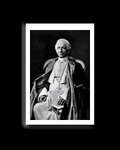
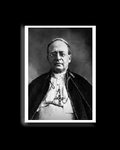

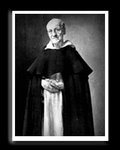
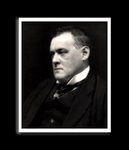
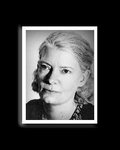
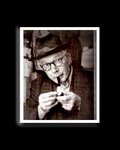






No comments:
Post a Comment